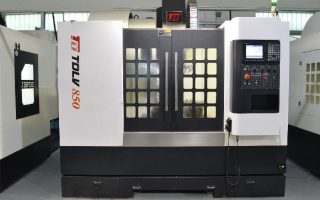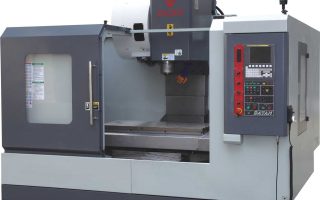
Introduction to Smart CNC Machines
Smart CNC (Computer Numerical Control) machines represent a significant evolution in manufacturing technology. These machines are equipped with advanced sensors, Internet of Things (IoT) connectivity, artificial intelligence (AI), and machine learning algorithms, enabling them to perform complex tasks with minimal human intervention. They are widely used in industries such as aerospace, automotive, electronics, and medical device manufacturing due to their precision, efficiency, and ability to integrate into smart factory ecosystems.
The production of smart CNC machines is a global endeavor, with manufacturers spread across various countries and regions. These machines are typically made by companies that specialize in industrial automation, precision engineering, and software development. In this article, we will explore where smart CNC machines are made, focusing on key manufacturing hubs, leading companies, and the factors that influence their production.
Key Manufacturing Hubs for Smart CNC Machines
1. Japan
Japan is one of the leading countries in the production of smart CNC machines. Known for its precision engineering and technological innovation, Japan is home to some of the most prominent CNC machine manufacturers in the world. Companies like FANUC, DMG Mori Seiki (which has a significant Japanese presence), and Mazak are headquartered in Japan and are pioneers in integrating smart technologies into CNC machines.
FANUC, for instance, is renowned for its advanced robotics and CNC systems. The company integrates IoT capabilities and AI into its machines, enabling predictive maintenance, real-time monitoring, and seamless integration into smart factory systems. Similarly, Mazak has developed its “Smart Factory” concept, which leverages Industry 4.0 technologies to optimize manufacturing processes.
2. Germany
Germany is another major hub for the production of smart CNC machines. Known for its engineering excellence and commitment to Industry 4.0, Germany hosts several leading manufacturers such as DMG Mori, Siemens, and Trumpf. These companies are at the forefront of integrating digital technologies into CNC machines, making them smarter and more efficient.
DMG Mori, which has a strong presence in both Germany and Japan, is a global leader in CNC machine manufacturing. The company offers machines equipped with IoT and AI capabilities, allowing for advanced analytics, remote monitoring, and adaptive control. Siemens, on the other hand, provides cutting-edge CNC controllers and software solutions that enhance the intelligence and connectivity of CNC machines.
3. United States
The United States is a significant player in the smart CNC machine market, with a focus on innovation and high-tech manufacturing. Companies like Haas Automation, Hurco, and Okuma America are key contributors to the industry. These manufacturers emphasize the integration of smart technologies to improve machine performance and user experience.
Haas Automation, for example, is one of the largest CNC machine tool builders in the world. The company incorporates advanced features such as wireless connectivity, real-time data tracking, and user-friendly interfaces into its machines. Hurco specializes in conversational programming and software-driven solutions, making its CNC machines highly adaptable to various manufacturing needs.
4. China
China has emerged as a major manufacturing hub for smart CNC machines, driven by its rapid industrialization and focus on technological advancement. Chinese companies like Shenyang Machine Tool Co. (SMTCL), Dalian Machine Tool Group, and Han’s Laser Technology are investing heavily in smart manufacturing technologies.
Chinese manufacturers are increasingly incorporating IoT, AI, and cloud computing into their CNC machines to enhance productivity and reduce costs. The Chinese government’s “Made in China 2025” initiative also plays a crucial role in promoting the development and adoption of smart manufacturing technologies, including CNC machines.
5. South Korea
South Korea is another key player in the smart CNC machine industry, with companies like Doosan Machine Tools and Hyundai WIA leading the way. These manufacturers are known for their high-quality machines that integrate advanced technologies such as IoT, AI, and automation.
Doosan Machine Tools, for instance, offers a range of CNC machines equipped with smart features like real-time monitoring, predictive maintenance, and remote diagnostics. Hyundai WIA focuses on developing innovative solutions that enhance the efficiency and precision of its machines, making them suitable for a wide range of applications.
Factors Influencing the Production of Smart CNC Machines
1. Technological Expertise
The production of smart CNC machines requires a high level of technological expertise in areas such as robotics, software development, and electronics. Countries and companies with strong R&D capabilities and access to skilled labor are better positioned to manufacture these advanced machines.
2. Industrial Ecosystem
A well-developed industrial ecosystem is crucial for the production of smart CNC machines. This includes access to high-quality raw materials, precision components, and a network of suppliers and partners. Countries with established manufacturing sectors, such as Germany and Japan, have a significant advantage in this regard.
3. Government Support
Government policies and initiatives play a vital role in promoting the development of smart CNC machines. For example, Germany’s Industry 4.0 initiative and China’s “Made in China 2025” program provide funding, incentives, and infrastructure support to manufacturers, enabling them to adopt and develop advanced technologies.
4. Market Demand
The demand for smart CNC machines is driven by industries that require high precision, efficiency, and automation. Countries with a strong presence in sectors such as aerospace, automotive, and electronics are likely to have a higher demand for these machines, influencing their production and development.
Conclusion
Smart CNC machines are manufactured in various countries around the world, with key hubs in Japan, Germany, the United States, China, and South Korea. These countries are home to leading manufacturers that leverage advanced technologies to produce machines capable of meeting the demands of modern industries. Factors such as technological expertise, industrial ecosystems, government support, and market demand play a crucial role in shaping the production of smart CNC machines.
As the manufacturing industry continues to evolve, the importance of smart CNC machines is expected to grow. Their ability to integrate into smart factory systems, optimize production processes, and deliver unparalleled precision makes them indispensable in the era of Industry 4.0. By understanding where and how these machines are made, businesses can make informed decisions about adopting and investing in this transformative technology.




